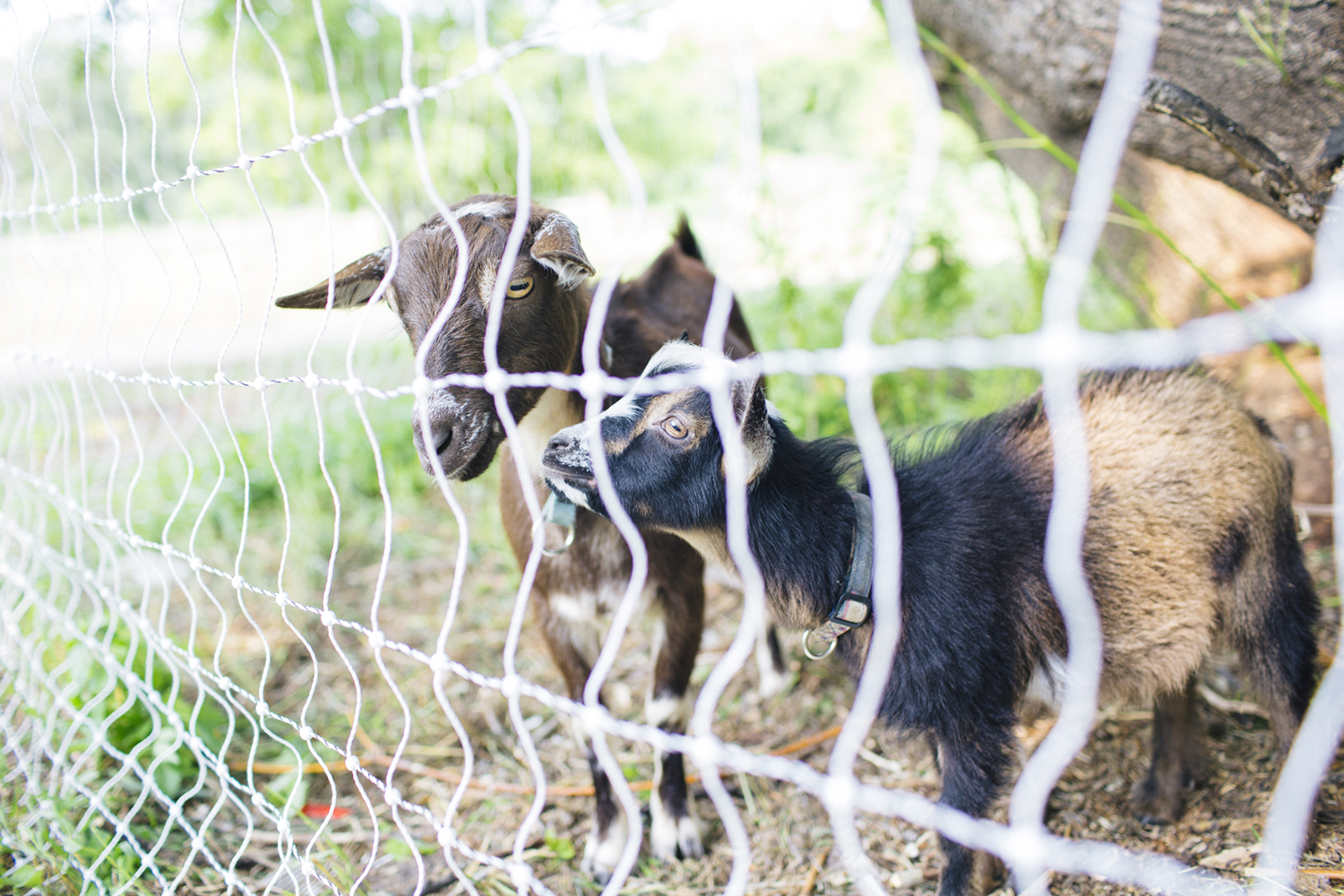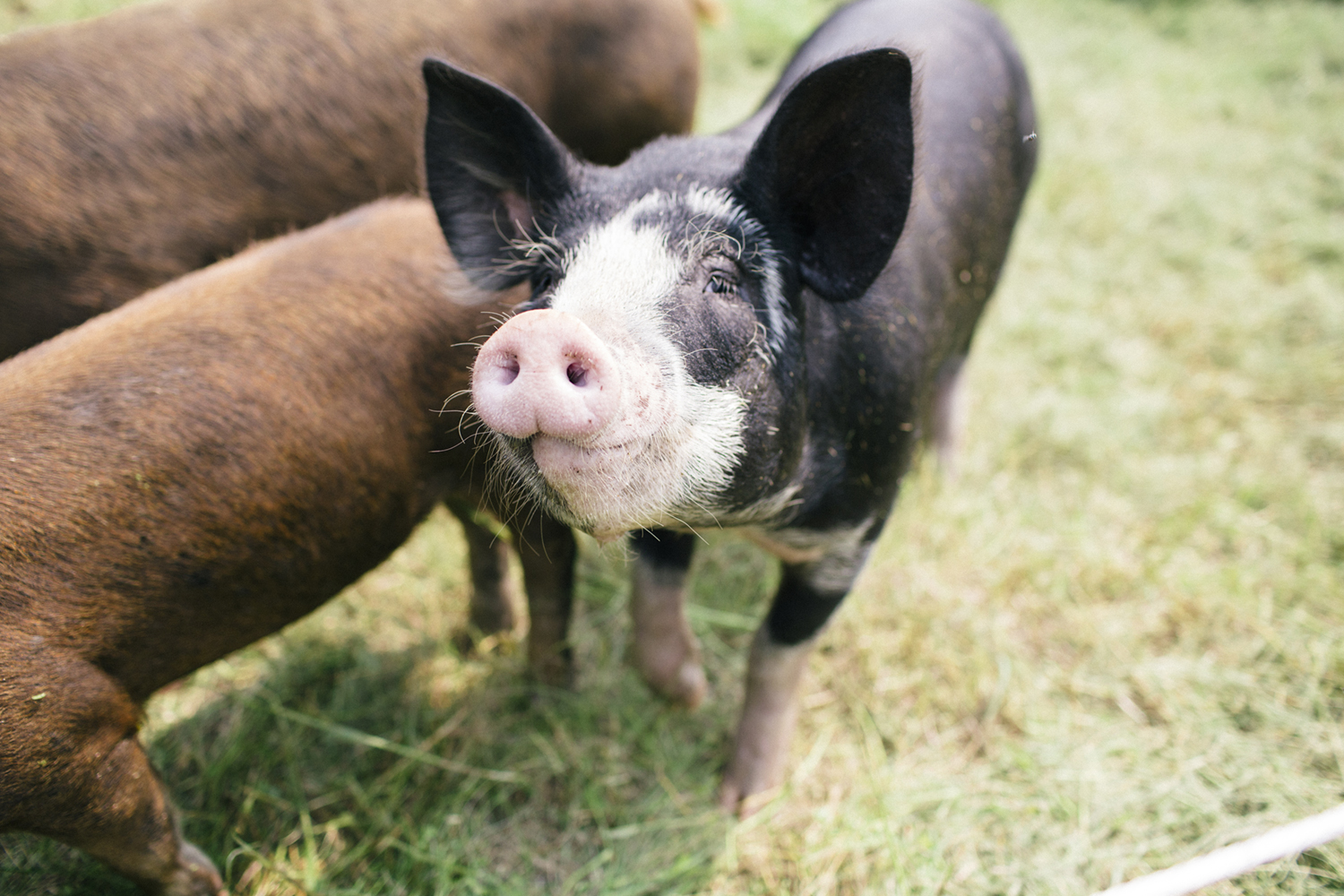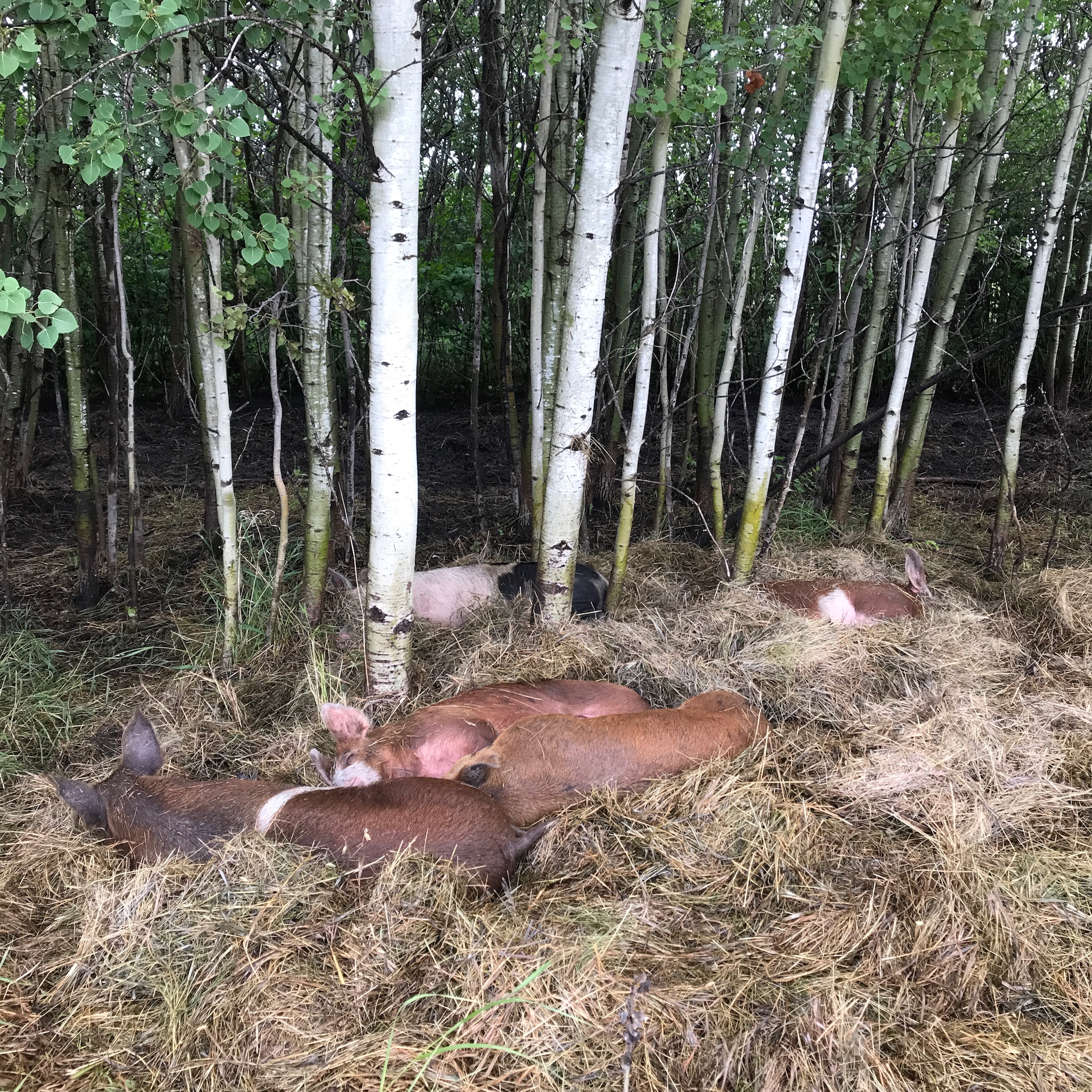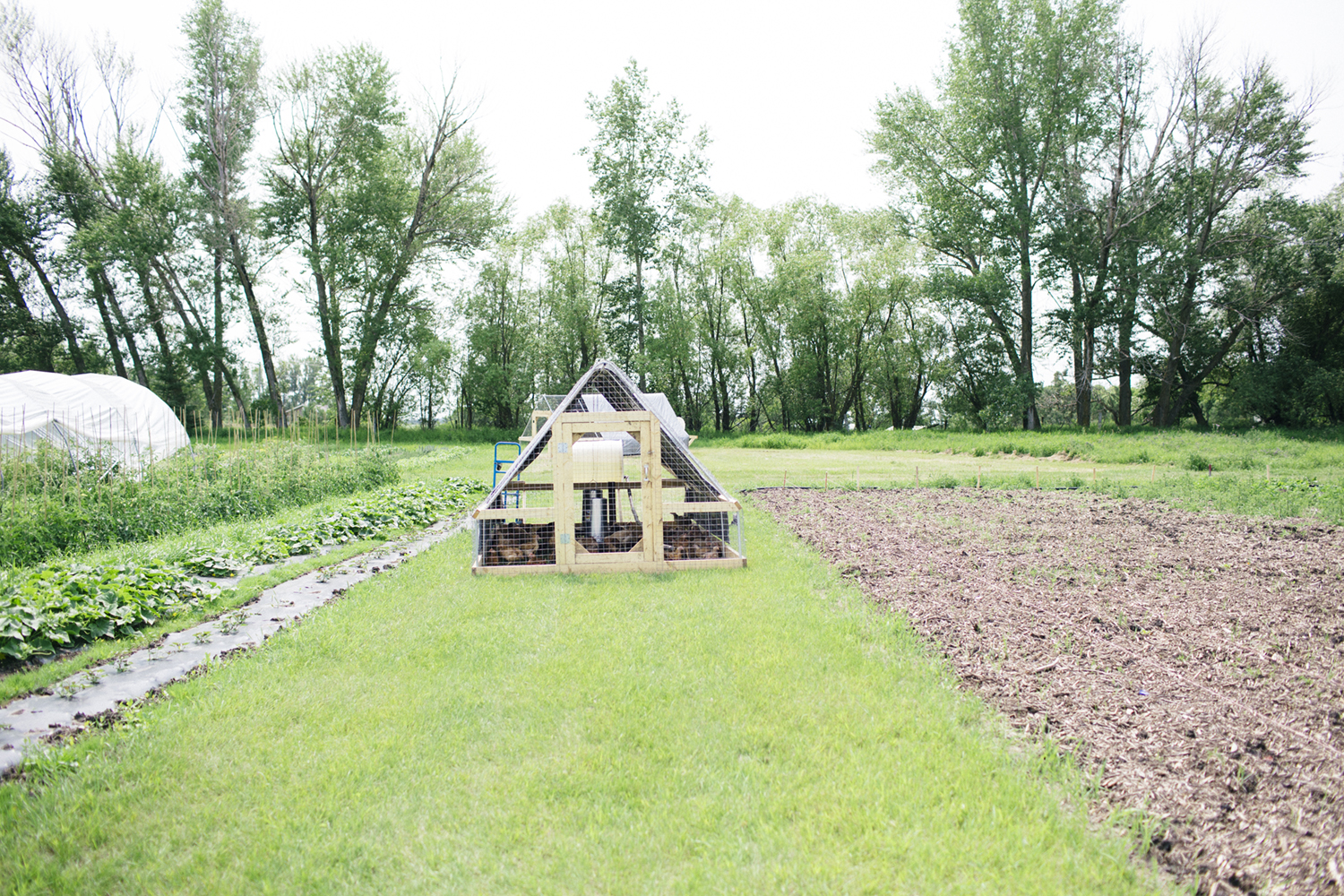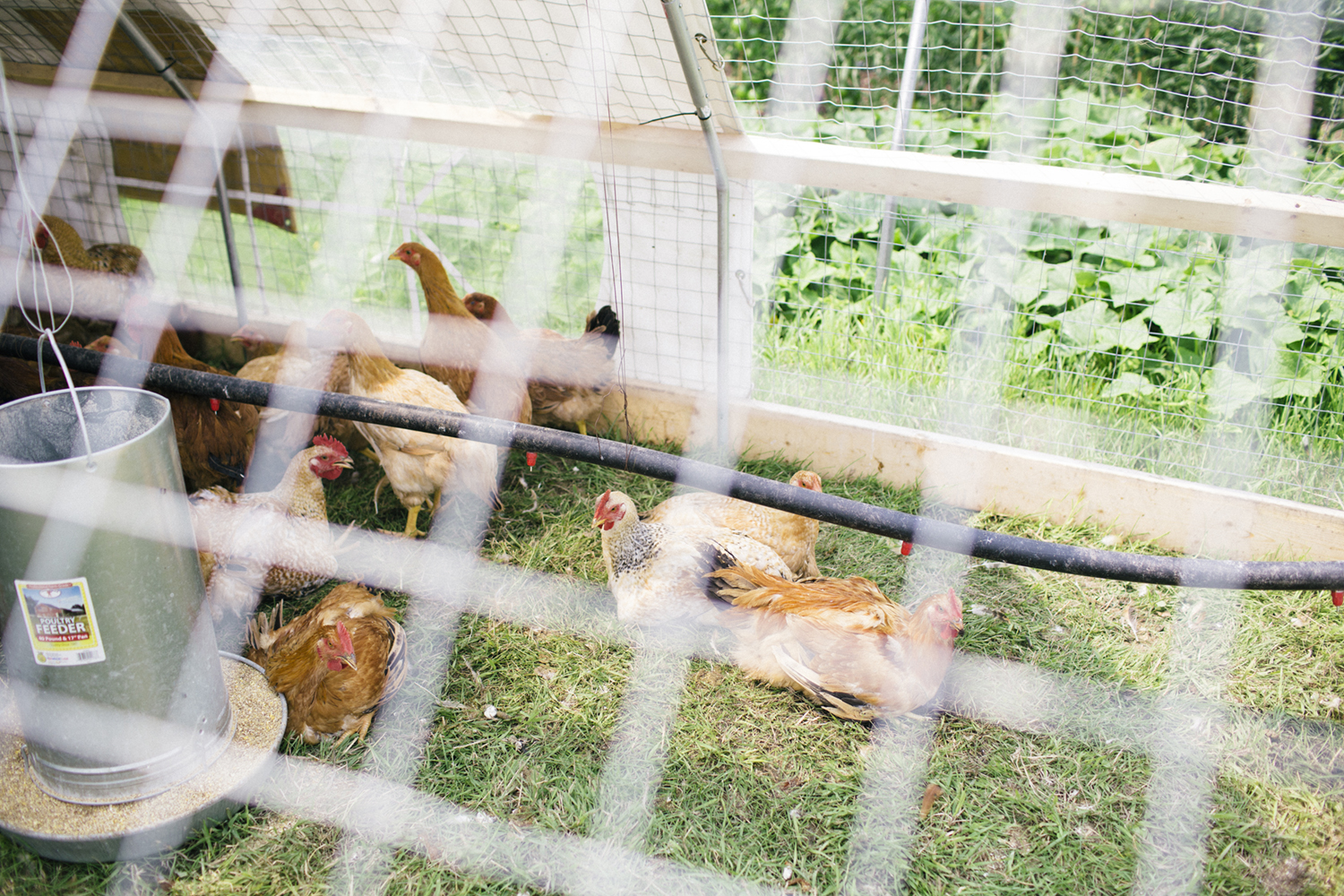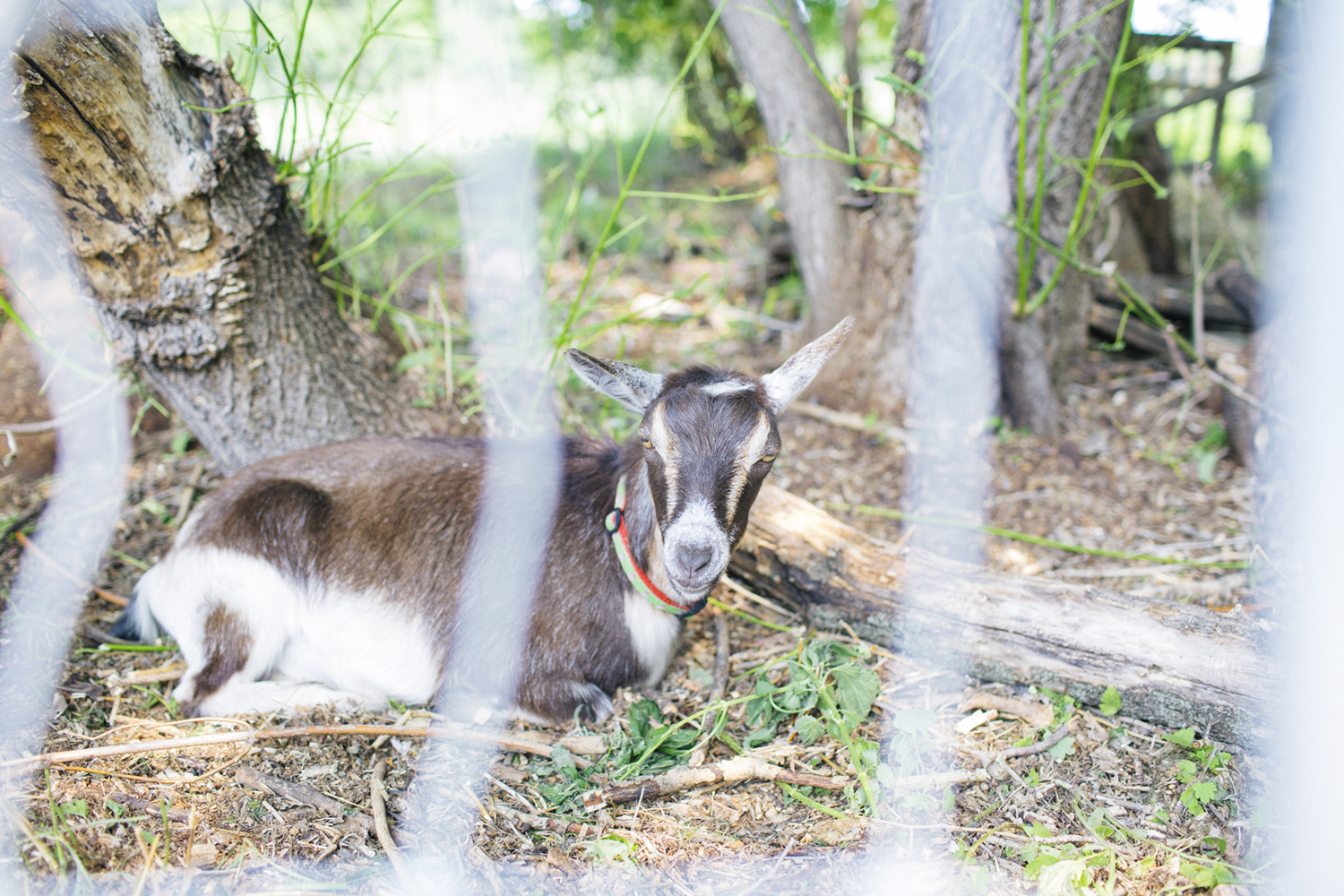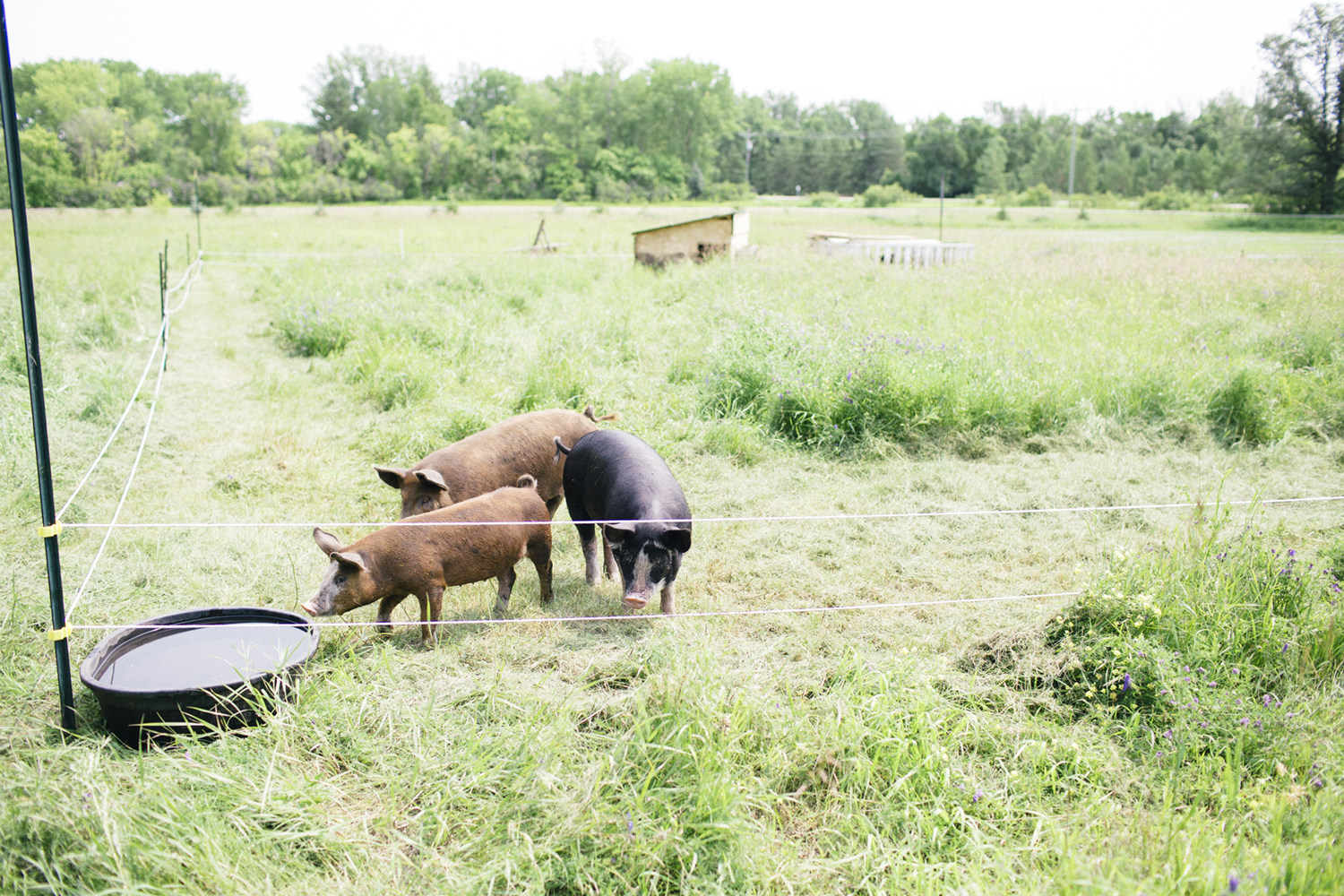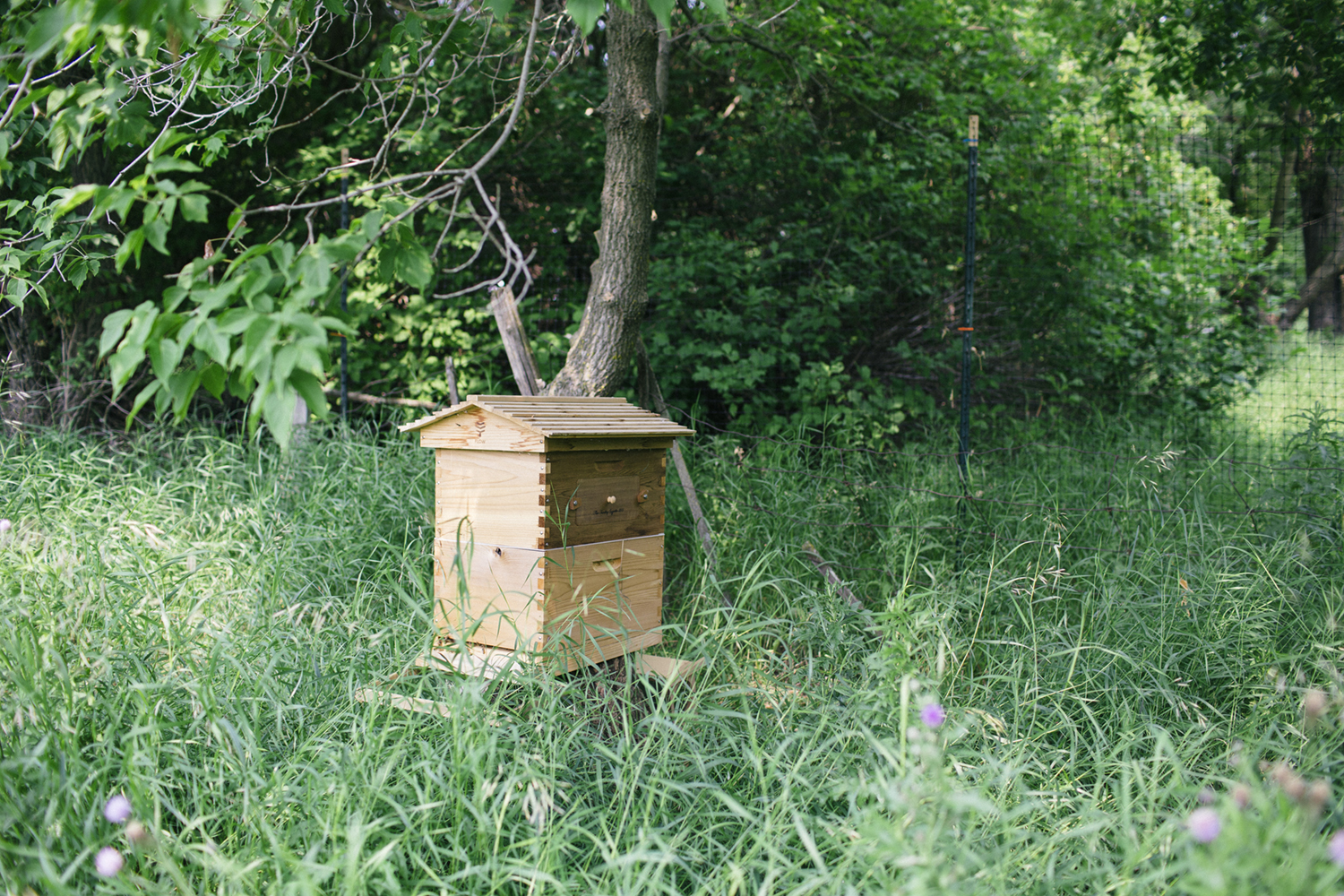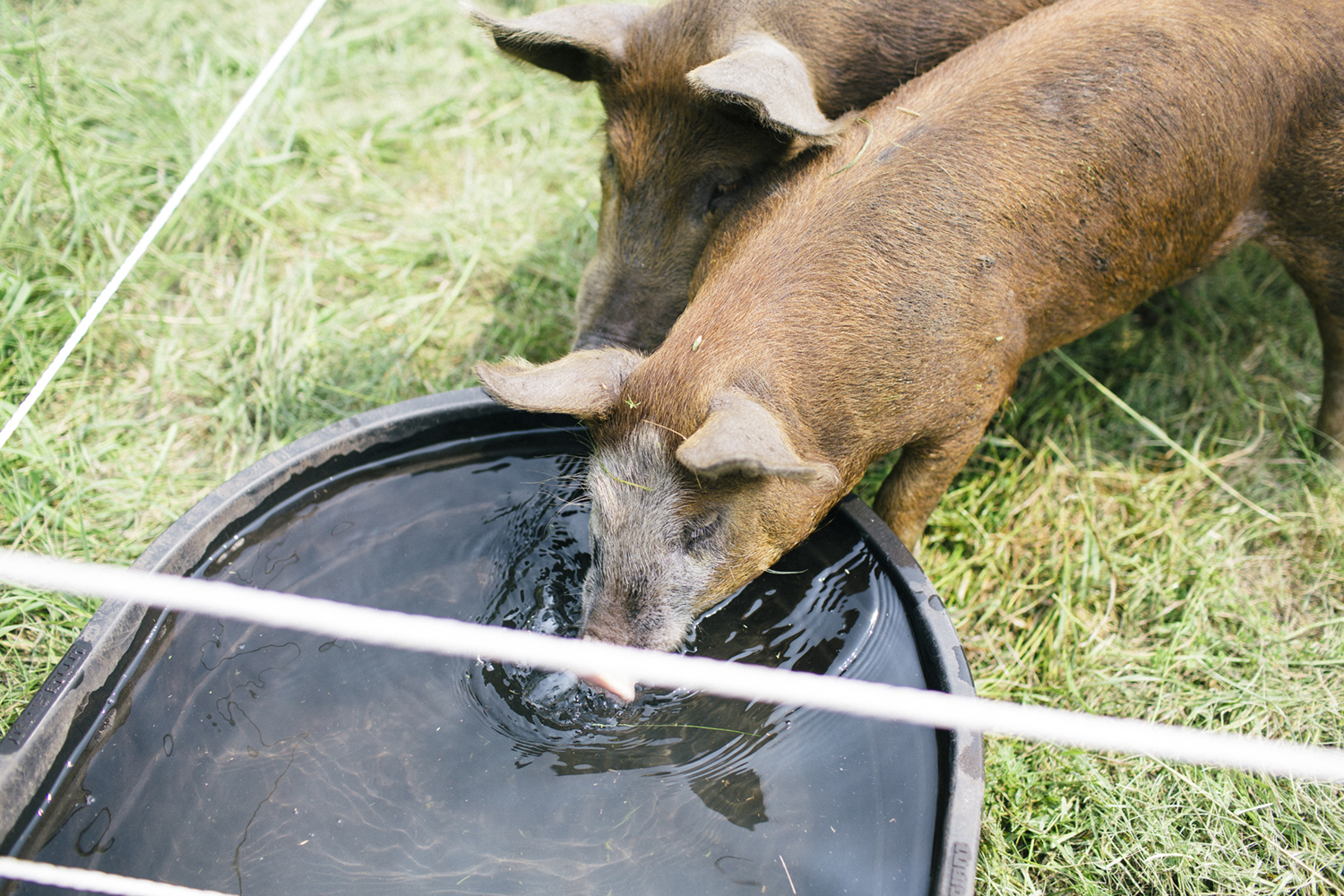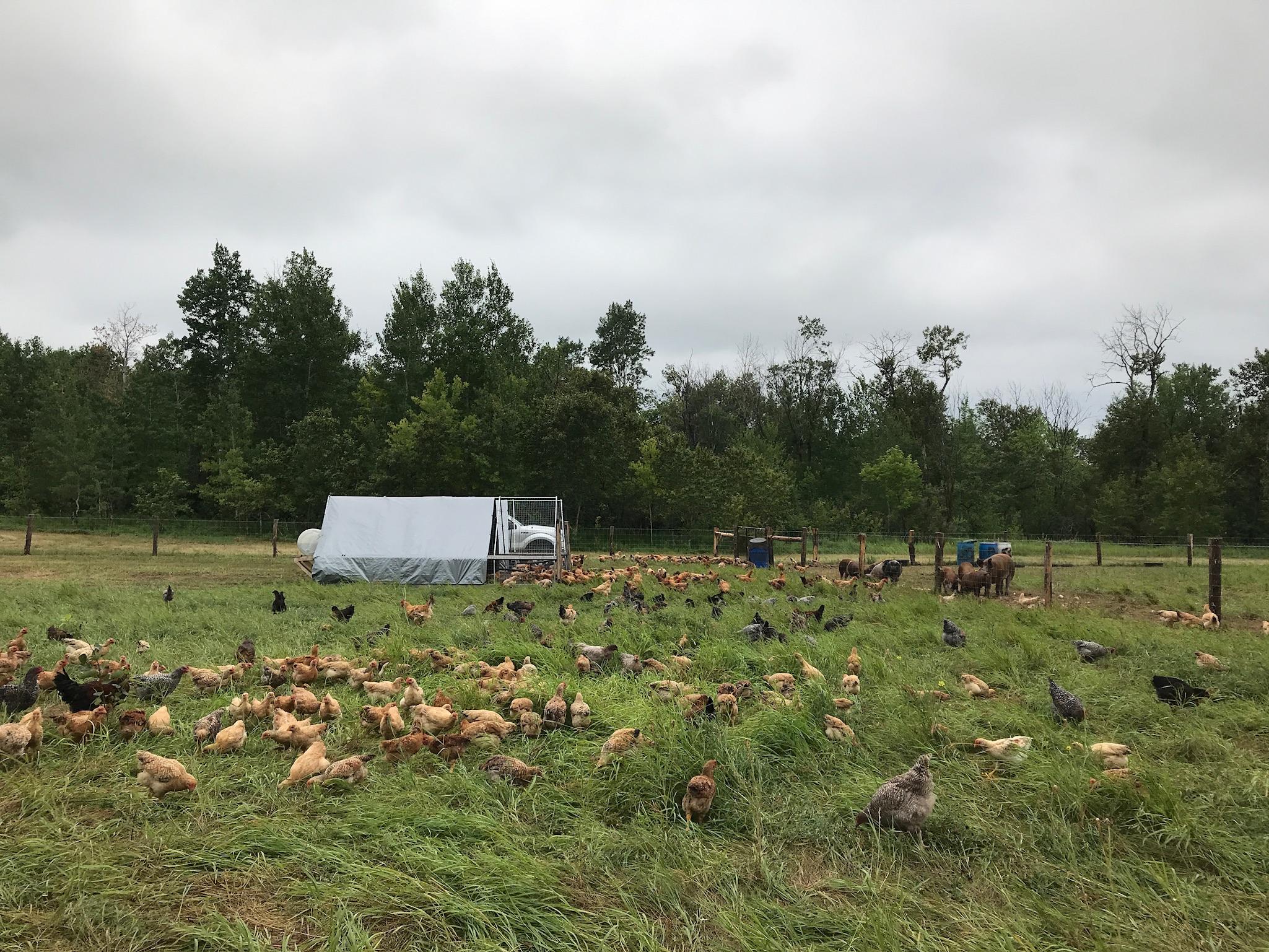– Our Animals –
[ Heritage pastured breeds ]
our approach
We care for our animals in a natural setting and give them plenty of room to root and forage. We feed our animals non-medicated feed and supplement their feed with garlic, herbs and other natural foods. Our chickens and pigs are free to roam the pasture and forest and supplement their diets with a variety of flora and fauna.
what do we raise on the farm?
Chickens
We are continuing to explore the best heritage breeds for egg production that thrive in Manitoba’s climate while supporting our regenerative farming practices. Egg quality, consistency, and the birds’ adaptability to a pasture-based system are key factors in our decision-making process. We believe “you are what your food eats,” and are dedicated to raising hens that forage naturally—eating grass, bugs, seeds, and vegetable scraps—contributing to healthier eggs and a more balanced farm ecosystem. We’re currently growing our flock with the goal of offering nutrient-dense, pasture-raised eggs as part of our closed-loop farm system.
Pastured Pork
Our breeding stock are Berkshire Sows with excellent bloodlines that were chosen for their high conversion rate of grass to weight. We experimented with pure Berkshire, Hereford Berkshire, Tamworth and Duroc cross. Our favourite breed combination turned out to be the Berkshire Hereford cross because of the flavour and quality of the meat, the fat to meat ratio and the length of the body, resulting in more bacon or pork belly.
Our pigs dine on ample scraps, grain and spend their days in pasture and wooded areas. We move them into the gardens whenever we need them to till up a plot, till the soil and fertilize.
Nigerian Dwarf Goats
There are a number of reasons we decided on this breed. First of all, they are on the livestock conservancy list and preserving heritage breeds is a priority for our farm. Secondly, they are small and adorable! The small size makes it so much easier to handle them and transport them. They fit in our dog crate and we can lift them quite easily. Thirdly, their milk has a very high butterfat content. Average milking goats would be 3 to 3.5% butterfat and the Nigerian goat is 6.5%. This makes their milk excellent for cheese making and is very palatable for drinking.

